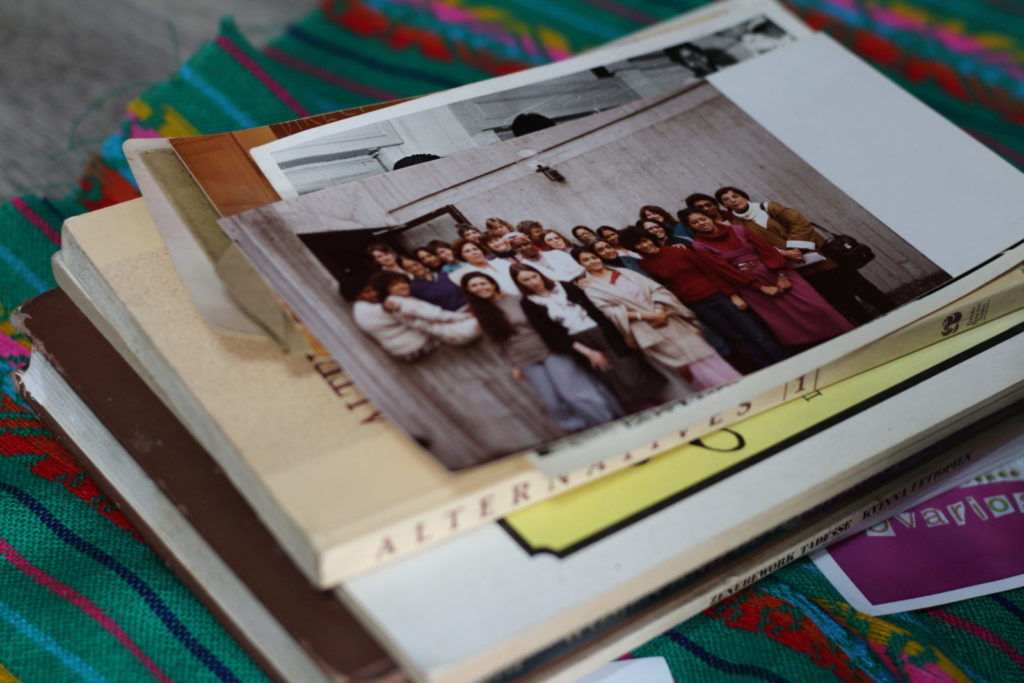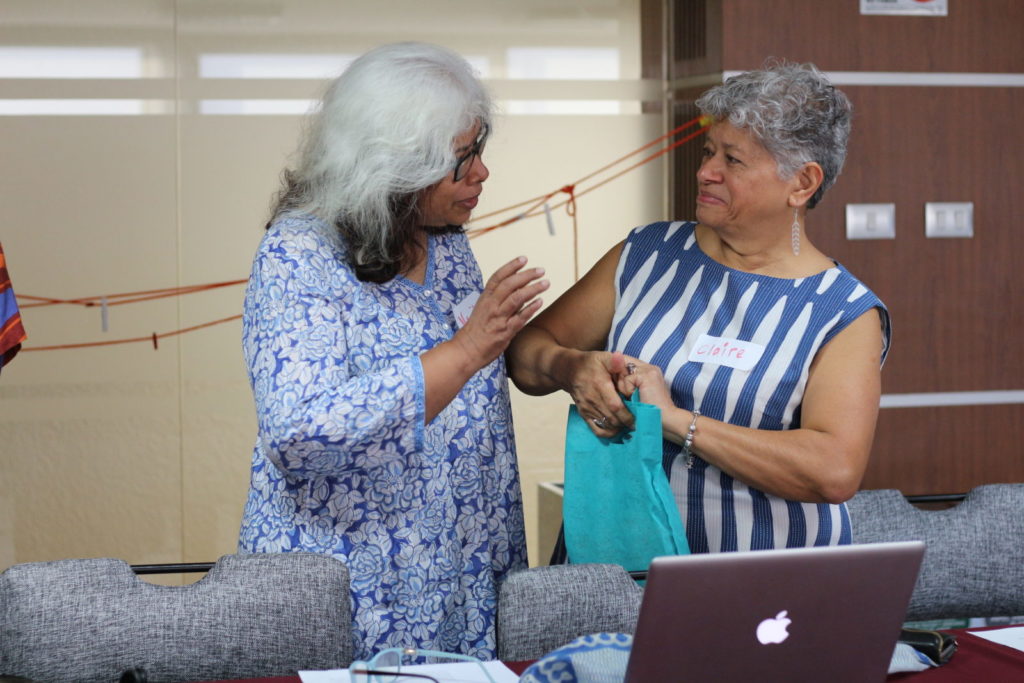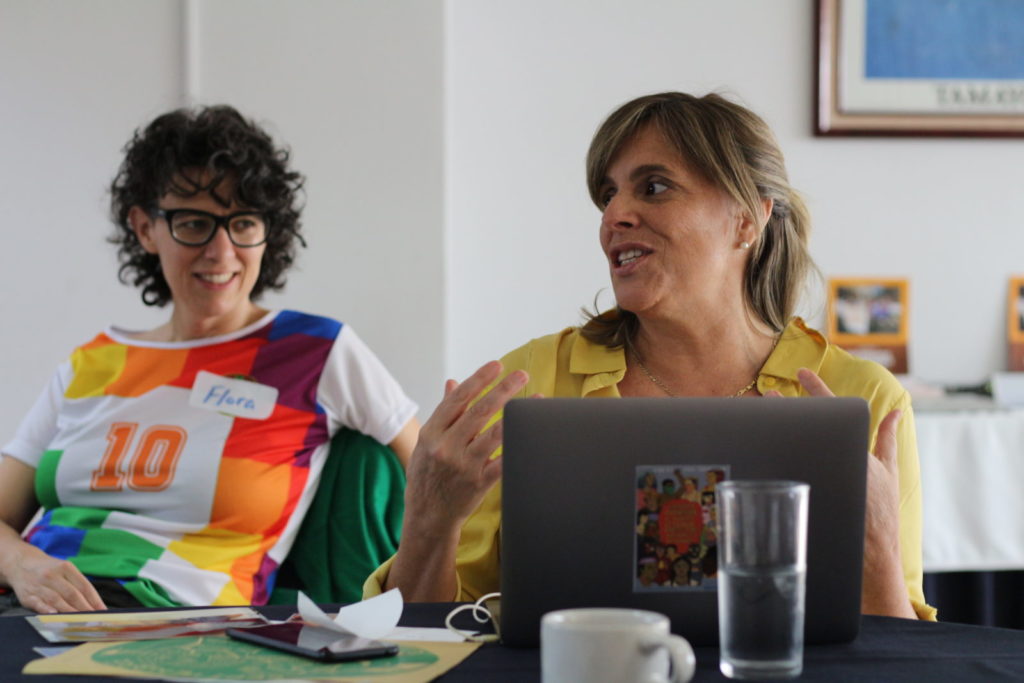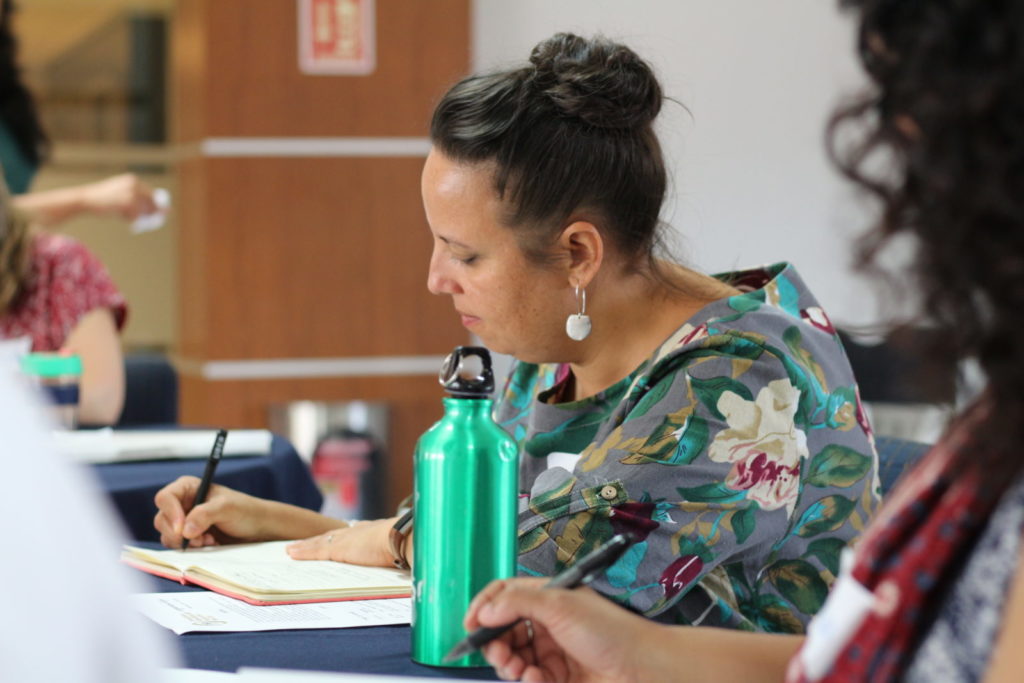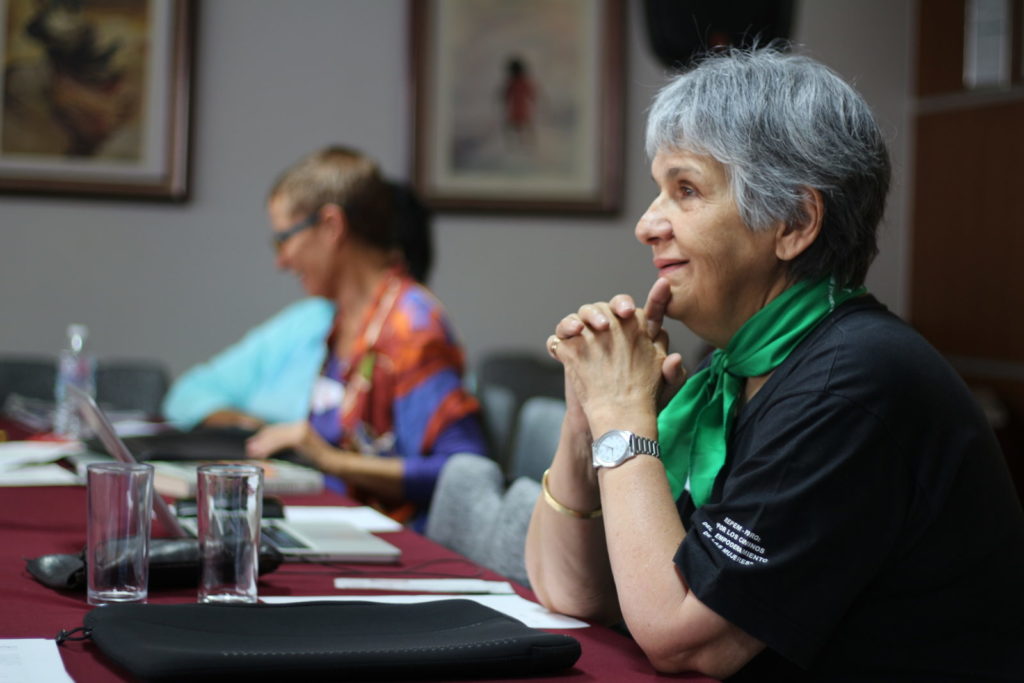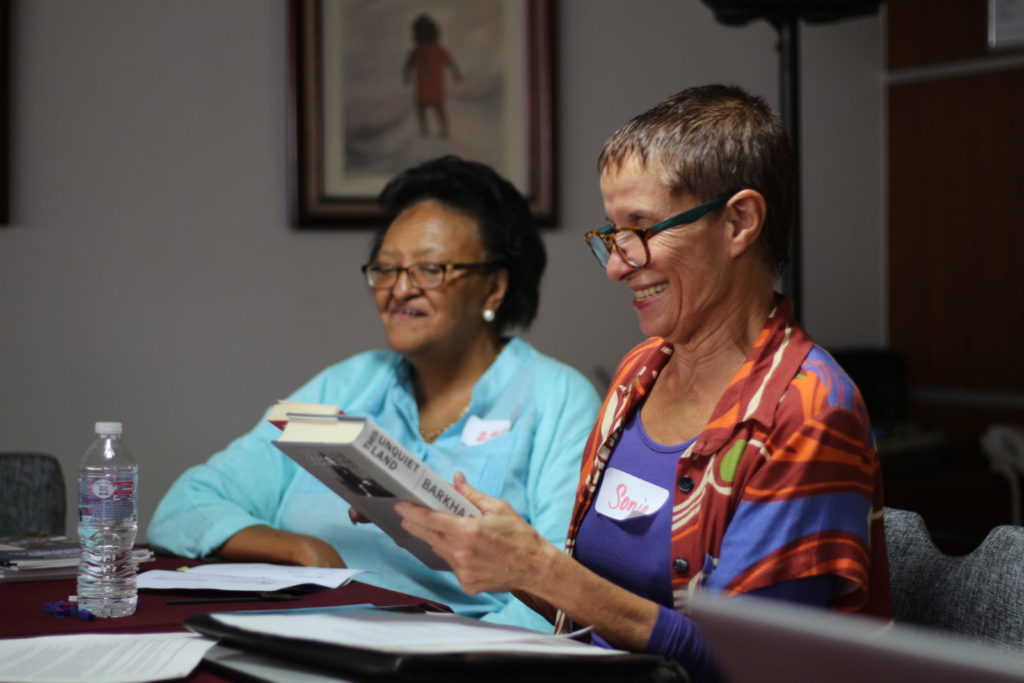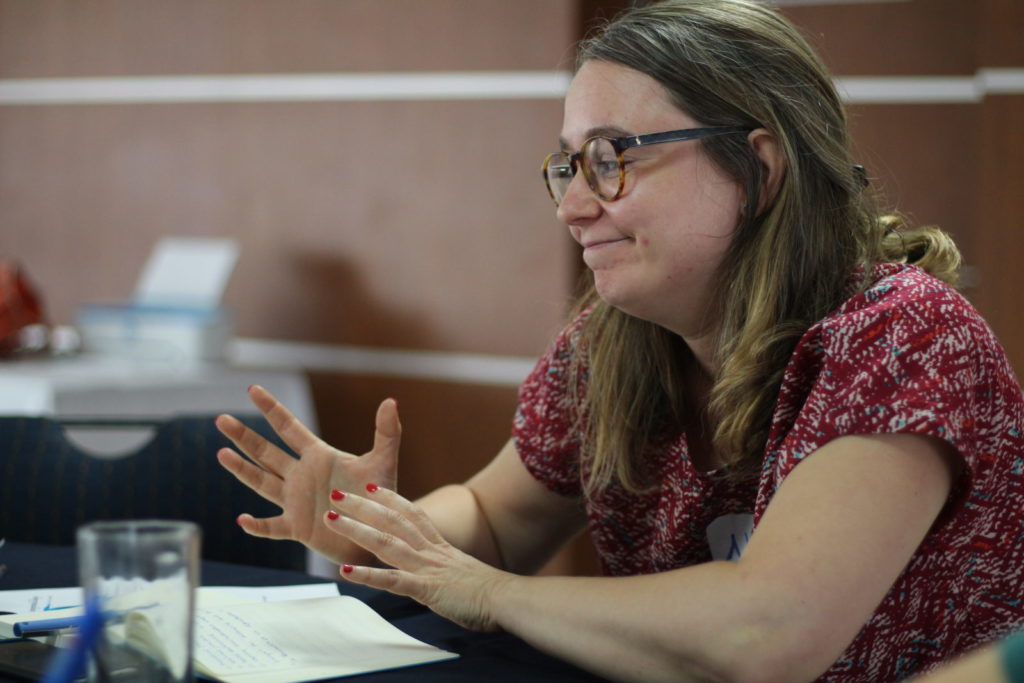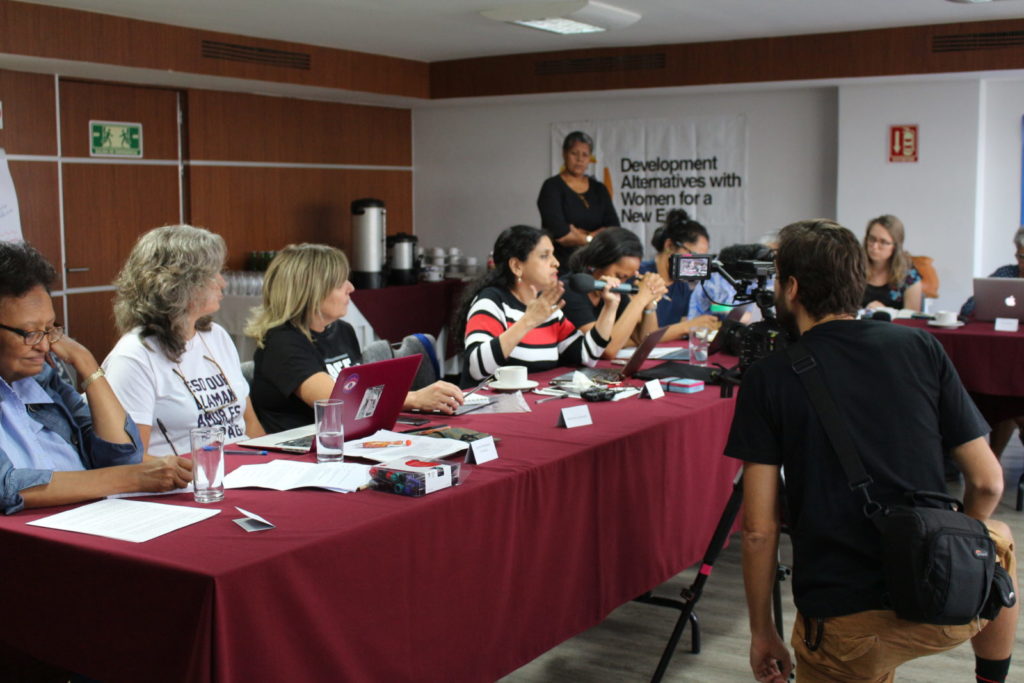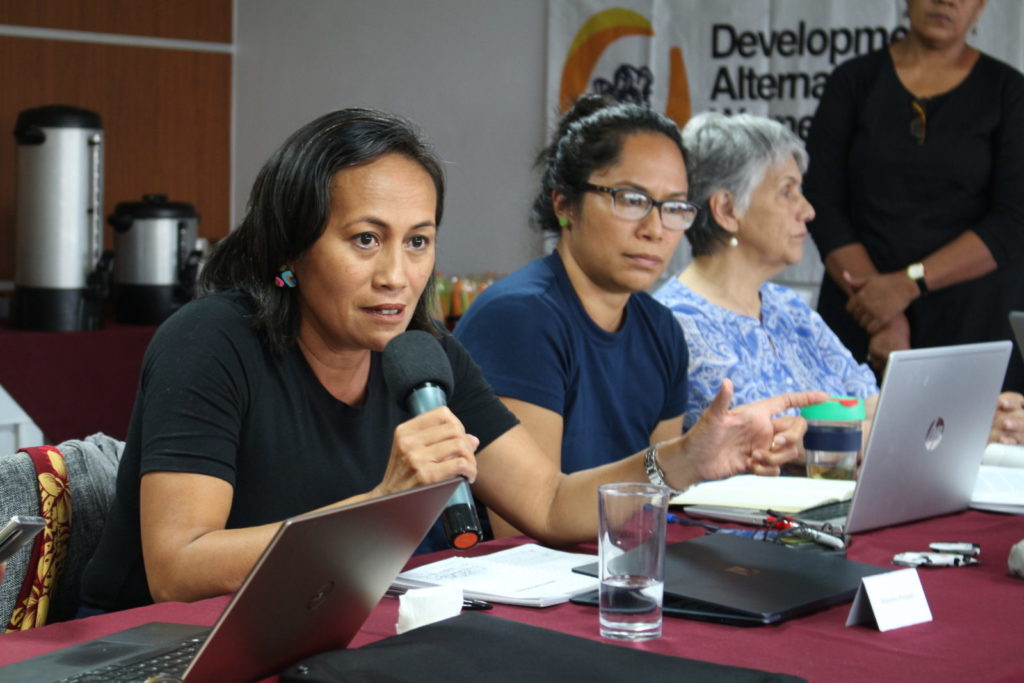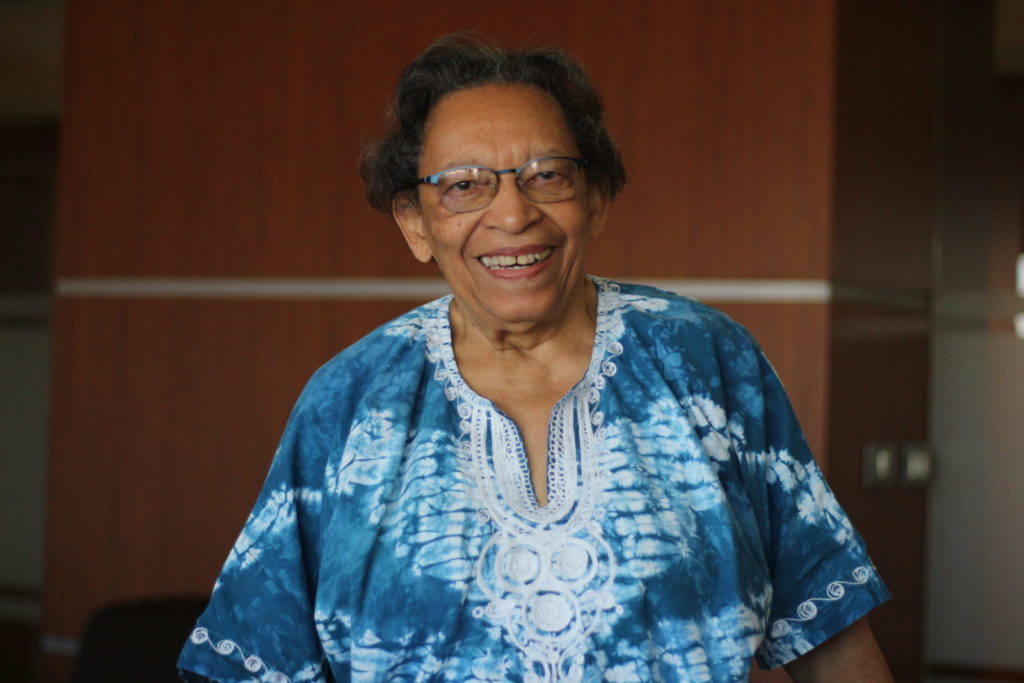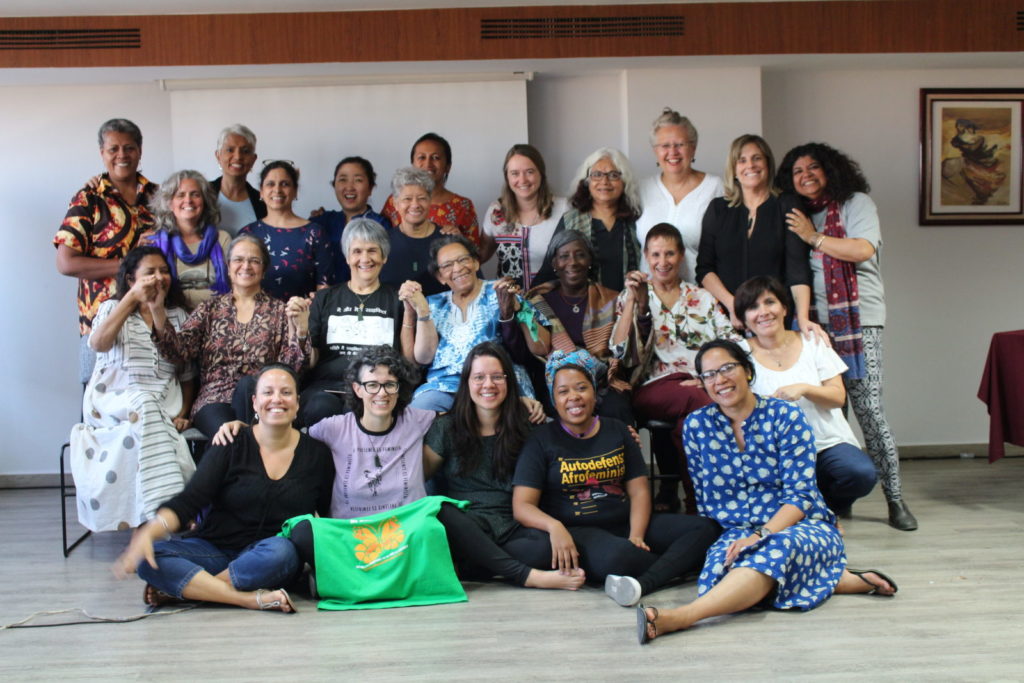
During November 29, 30 and Dec. 1t, 2019, DAWN held an Intergenerational Dialogue (IGD) in Mexico City. In our usage, “Intergenerational” refers to different moments in DAWN’s history rather than to the age of participants. This meeting gathered some of DAWN’s former and current members across different phases of engagement. The dialogue focused on our feminist trajectories and the current context of the world and explored how feminists sustain ourselves and our movement through the changing contours of our struggles. The IGD is part of a larger organizational memory project that seeks to cull learnings for crafting fresh strategies for activism and advocacy in today’s fierce and tricky world that has fundamentally shaken so many of our previous assumptions.
At the meeting, participants reflected on how the last three decades have seen the feminist movement expand globally both in breadth and depth. The movement has influenced normative frames, laws, policies and programs, upturned sacrosanct social science concepts and contributed feminist theories that have deeply destabilized existing paradigms of the world order. Its ideas have gained ground and have been institutionally legitimized.
Whilst the feminist movement has gained traction, at the same time the world has been transformed in paradoxical ways. On the one hand, the end of the Cold War, expanding multilateralism and the emergence of a global South, have been accompanied by the rise of neo-liberal ideologies, increase in inequalities, the strengthening of militarization and securitization, and a deepening environmental crisis. On the other hand, the rise and intensification of social movements and democracy have continued to challenge these trends. But the rise of well-funded right-wing political groups and neo-populist regimes, and erosion of progressive values has posed many threats not just to feminist movements, but also to progressive movements the world over. The pluralistic and humanist ethos of societies has been disrupted by growing intolerance, driving wedges on the basis of identities of religion, class, caste, gender, ethnicity and sexuality.
In many countries, the introduction of draconian laws that infringe on constitutionally guaranteed rights, poses a serious threat. A weakening of the progressive economic and social functions of the state, even as its security and surveillance apparatuses grow ever stronger and a strengthening of the private sector have resulted in diminished social security provisioning, leaving the poor and disenfranchised worse off economically and socially. Rights to bodily autonomy and integrity are under serious contestation and there is a concerted attempt to scuttle the gains made through the UN conferences of the 1990s (especially Vienna, Cairo and Beijing).
Gender is a major battleground today, with a strong anti-gender lobby emerging within the larger politics of de-democratization in many countries in both the global South and North. In some countries, anti-gender and anti-abortion politics overlap. These adverse transformations may have encouraged the growth of feminist struggles and other forms of political contestation. It has also created the conditions for wider and deeper transnational exchanges. A troubling development in recent times is the strengthening of conservative/right wing women’s movements. They are largely comprised of a ‘post-feminist’ generation that has benefitted from the gains made by feminist movements (education, access to labour markets, rights). Some of them incorporate core feminist agendas on gender-based violence, equal pay and social services and in the same breath, are against abortion and LGBTQI rights.
The language of women’s empowerment (or its oddly named surrogate, gender empowerment) is everywhere, from the expressed concerns of the leadership of the IMF and the World Bank to a growing number of Northern governments, that explicitly proclaim themselves and their development policies to be feminist. Navigating this deceptive terrain demands stronger and more consistent analytical efforts to bridge the gaps between the micro-levels of gender power within households and communities and the macro-structural levels where economic power largely resides.
At the same time, there are also internal fissures and unresolved tensions among feminists on the meanings and uses of the concept of gender. The feminist movement in the 1980s contributed to a fundamentally transformative concept of ‘gender’ as the social construction of biological difference. Initially, it was the rallying cry of women’s rights researchers and activists struggling to assert the importance of culture over nature, of social, economic and political systems over sex-based differences. Biology, they argued, was not destiny. Over the decades, with the movement’s commitment to diversity and pluralism, the concept has been extended and expanded beyond women to include sexual orientation and gender identity/expression, including ‘transwomen’ and inter-sex identities. But this has also been fraught with tension. Troubling questions remain on what this all-encompassing concept and the social construction of gender include and exclude, in a complex political and social positioning of identities, the hierarchies they embody and their implications .
The new technology of the ‘digital age’ has brought its own challenges. The rapid rise of robotization, artificial intelligence, 3D printing, and the platform economy are empowering transnational corporations and posing severe challenges to the future of work, employment, social protection, while holding out the threat of even greater inequality. Communication systems are driven by neoliberal or market-driven agendas and policies. Cyberspace has been leveraged for cultivating, expanding and deepening consumerism, largely but not only for the privileged.
One of the few positive outcomes in this period is access to cheap mobile phones for the underprivileged. However, the proliferation of smart phones has changed the game considerably for communications through a host of social-media platforms. For progressive movements, internet technology has opened up unique opportunities, along with some serious challenges. However, tech-enabled democratic participation has proved to be a double-edged sword. A pressing challenge for progressive social movements today is the abuse of digital technology and social media platforms to peddle manufactured ‘news’. Added to this is the rising specter of the surveillance state and the extent to which the platform economy is intensifying corporate control over production, consumption and distribution systems in more and more spheres. Economic and corporate power, social and public institutions, decision-making, the concepts of democracy and citizenship, the concepts of social organization and feminism are being transformed through rapidly changing information technologies, production, and communication.
Last but by no means least, is the challenge that the so-called ‘Anthropocene age’ with its rampant corporate extractivism is posing to the survival of our planet, its biodiversity and species, planetary systems of climate and oceans, and the very meaning and quality of human existence. The recent rise of young people against climate change has been heart-warming, but it is also reflective of cries of despair over the deafness and greed of the wealthy and powerful, and the deep failure of institutions. This fierce new world of financialized globalization is marked by ever more visible devastations of climate change, skyrocketing inequality, soaring numbers of disenfranchised refugees and migrants, women’s increasing struggles for livelihoods and survival, and corporate capture of states and public policy.
These challenges call for a concerted effort on the part of feminist and other progressive social movements to reimagine forms of resistance and transformation. While doing this, there is a need to engage in deep reflection and critique, to look inwards at our previous and existing strategies to assess what worked, what didn’t, and where we could have mobilized differently. Some of the analytical frameworks that informed the feminist movement were developed back in the 1980s and 1990s when political, social, economic and cultural contexts were very different. The mounting challenges confronting the feminist movement now require us to move ahead and rethink some of those assumptions. The uncomfortable question facing all progressive and social movements is: how did the current context of bigotry, polarization and hate-politics emerge and gain such strength and in so many of our societies?
Structural analysis is needed, but also sharing our histories and current struggles, reflecting on strengths, weaknesses, and lessons learned. We need to rethink our strategies, to imagine new ways to resist, and to learn from each other. At the same time, we need to valorize and hold on to what has worked in the past and is working even now. We need to respond strongly to old and new struggles in new and old ways.
The ‘Memory Project’
DAWN’s Memory Project seeks to harness collective memories and new imagination for the current phase of feminist struggles. The project will move forward by engaging in a process of ‘inward-outward’ reflections amongst members of, DAWN, who together constitute a strong cross-generational cohort of feminist activists.
Within an ‘inward-outward’ reflection, the ‘inward’ method is looking within DAWN, its political location across the 35 years within the feminist movement and beyond, its program, its work, its strategies as a global network. The individual women and leaders who have made up the organization were critical to its growth and evolution. The ‘outward’ reflection would be to look at the world that DAWN has been engaging with, both regionally and globally, a wide spectrum of competing paradigms that positioned ideas, norms and institutions in ways that challenged and altered social and gender justice paradigms. The ‘inward-outward’ method requires DAWN to harness its memory, gather its resource materials and tap into its intellectual capital to recover information and analyses forming its institutional journey.
DAWN women have different histories and backgrounds, and we come from many different countries and contexts. Our collective struggle is to build evidence, institutions and processes to make governments and the multilateral system more accountable in this phase of extractive and digital capitalism, as well as to regulate and control the private interests that are swamping the public sphere, our bodies, our lives, our communities, and our planet.
We hope that to recover our memories of events and moments of shared experiences over decades through individual recollections and reflections that will build up to collective thinking on current and future struggles to inform possible collective action.
